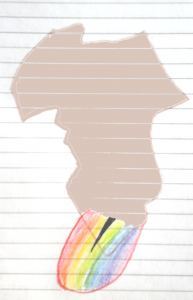Last August and for two days, UNISA hosted the National Conference on Multilingualism in Higher Education. Academics and language practitioners from all around South Africa came together to present their initiatives and discuss the issues at stake.
For instance, North West University has started to become a trilingual university (English, Afrikaans, Setswana). It already provides interpreting services for those languages.
At the University of KwaZulu Natal, learning Zulu is now compulsary for all students and a team around Dr Langa Khumalo is working actively into producing multilingual terminologies. His own talk introduced a tongue-twisting term often heard during those two days: intellectualisation. In short, it refers to the process of empowering a language of communication into a language of learning and teaching.
Prof. Mbulungeni from the University of Cape Town (UCT) gave a keynote address. UCT seems to also have a terminology project with an online platform (but I could not retrieve the link).
As for the University of South Africa (UNISA), it has already initiated the translation of selected learning modules into all official languages. Prof. Koliswa Moropa, Khetiwe Marais and Feziwe Shoba presented this ongoing effort and the challenges it arises.
Prof. Laurette Pretorius presented our own effort at the Academy of African Languages and Science to build language resources from institutional content in
Higher Education. My own bit there mainly deals with terminology extraction for the South African languages, on which I have the pleasure to work with Friedel Wolff. He himself gave a talk on the more or less multilingual nature of institutional websites.
Overall, a pretty good conference, very stimulating for those of us working in the realm of mother-tongue education, be it on an institutional or technological level.
FURTHER
Conference poster and full programme
The Academy of African Languages and Science at UNISA
UKZN Language planning and development office
Interpreting services at NWU
